Digitization for Business
The term digitization generally refers to the changes in processes, objects and events that occur as the use of digital devices increases. In the original and narrower sense, this is the creation of digital representations of physical objects, events or analog media. In the broader and nowadays mostly more common sense, the term as a whole stands for the change towards digital processes by means of information and communication technology.
Different interpretations, aspects and emphases characterize the term and provide many interesting, informative and insightful contributions for DiALOG magazine.

Bucket wheel excavator of the digital transformation
The changes in life, in organizations and in our daily interactions are tangible and sometimes disruptive. Yes, they are doing away with what was "state of the art" just a few years ago, a generation ago. Lifelong learning, improvement and reorientation will keep us on our toes.

The role of people in digital transformation
When everything is digitized and depersonalized, when more and more decisions and processes are automated - where do I find myself as a human being? How do I manage to develop as my very own personality and to work out my strengths - in view of the unrestrained...

From the emergency solution to the optimum
The last year has changed a lot. The working world in particular had to rethink. Digitization experienced an enormous push, intentionally or unintentionally, and concepts such as the home office or mobile working moved into the focus of companies.

Digital marketing and sales processes
Sometimes change comes faster than you'd like. The Corona pandemic, at the latest, has shown this, banishing the majority of communication to the Internet. The result? - A complete transformation of many sales and marketing processes annd a triumph of the digital world.

All web or what?
Yes, there was a time: The time before the Web. Really, really before. Back when everything was better and IT was still electronic data processing. And when midrange computing was translated as medium data technology. And software development was complex and expensive.

Dictatorship of digitalization
Recently, the Microsoft Threat Intelligence Center (MSTIC) published only two months after discovery, the hacking actor Hafnium, which until a few days ago had infected almost 60,000 local Exchange server systems in Germany alone and shows: we are dependent...

Digitization - dancing around the golden calf?
A central answer to Corona is: We need to digitize work, health, and indeed our entire lives even faster and more deeply. Ideally, we will project our analog world onto a digital surface in the future, where we can process it more effectively.

The administration as a pioneer
Identity management is becoming increasingly important in the age of digitization due to the sharp rise in the number of digital interactions. Physical credentials such as ID cards or driver's licenses are difficult to transfer to the digital world.

New work needs new mentality!
It was foreseeable for a long time that the digital office would become an existentially important factor in the modern working world. But the fact that a worldwide pandemic would trigger a boom in new, flexible forms of work probably surprised most of us.

...and suddenly everything went digital
Lockdown, contact restrictions, homeschooling - Corona fundamentally changed our everyday lives in one fell swoop. From one day to the next, there was also an acceptance of digital communication instead of physical presence.
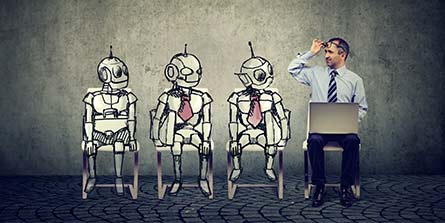
Bits and bites eat common sense
Watch out for satire. When DiALOG magazine came into the world 10 years ago, everything was still fine - almost. Digitization was then seen as the gravedigger of the real world, as a Stern article headlined in January 2011. Ten things that will (almost)... become extinct in 2011.

Consulting for digitization redefined
10 years ago, the phrase "consulting is people business" applied. To a large extent, it depended on the appearance and personality of the consultant. Although solutions were based as far as possible on standard applications, in the end a great deal was customized.

Ambassador for the new age of digital challenges
Prof. Dr. Katrin Klodt-Bußmann, Dean of Business Law at HTWG Konstanz, is an ambassador and convinced trendsetter for the "new" age of digital challenges. She questions, sets accents and consciously approaches the subject with new methods.

Acting future-proof
Our world is continuously changing. From time to time, this change is so great that it permanently shakes existing structures and processes, and then we speak of a revolution, such as the "Industrial Revolution". This process does not happen overnight,...

Fit for the digital future?
Managing documents and information digitally has long been part of everyday life at many organizations. But with increasing digitization, the demands on the systems are also growing. Reason enough for the NOVELLUS Group to put its enterprise content management (ECM) system...

Planning is half the meeting
Spending less and more effective time in meetings is easily possible digitally: Via online meeting software, participants access all relevant information and documents and can also incorporate agreements and decision paths from past meetings into the current...
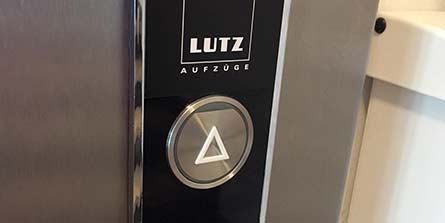
Service Excellence
Only the comprehensive service concept ensures the survival of the owner-managed, medium-sized family business Hans Lutz Maschinenfabrik GmbH & Co.KG, or LUTZ-Aufzüge for short, in a highly competitive market. Service 2.0" marked the beginning of the digital strategy...

Will blockchain change the world?
The term blockchain has appeared in the headlines many times in recent years. The technology enables a global register that clearly assigns ownership and can be used to transfer values in a matter of seconds if required. Blockchain works without intermediaries such as...

Digitization meets emotionalization
When did this happen? When did you stop caring about someone, taking time and leisure? If you take a look at a modern office, you can quickly see it. It's because we all, simply have far too much on our desks. In the course of digitalization, we receive more e-mails per minute than..

Innovation in 360-degree customer communications
As part of the digitization of business processes and the modernization of corporate communications, companies must decide what their focus should be: The use of video platforms, but also voice and software robots with and without artificial intelligence are available as options.
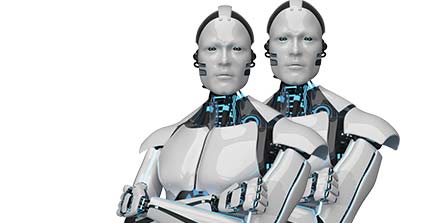
Two is better than one
The digital twin in Industry 4.0 is one of the hottest topics in the industry at the moment, and in many cases it is still uncharted territory for the companies that use it. It is a digital representation of a product that mirrors its real counterpart.

Making the coal glow
The publishing business, it is not new, has been presented with a major challenge by digitization. The classic business model, geared purely to subscription customers, has to rethink, because more flexible and individualized offerings are increasingly in demand from...

Fast money through paper renunciation
Monday, 09.15 in the office of a major loss adjuster. Our lawyer is asking for urgent information on filing a brief with the court, the deadline for which is in a few days. A look at the claims file would suffice - but unfortunately it is "out of print". What now?

Just say it: plain language for customers
Summer 2014. A hot day. The room at the Vodafone campus is well filled. There is a whiteboard in the middle - still completely empty. We talk about communication: How do we write and talk to our customers? How can we make our processes even better?

Customer loyalty via video?
How does a customer reach his insurance company today? By phone via cell phone or via an app. At Allianz, the customer has the option of downloading the "My-Mobility" app and thus has relevant information, service offers and direct contact with the customer advisor...

Heidelberg goes Digital
A global economic trend we can observe today is that companies in a wide variety of industries that were founded in the pre-digital age are now driving the rise of the digital economy of things. At their core, these companies are transforming their original analog...

Blockchain - innovation engine for the future
The terms digitalization and Industry 4.0 have now arrived in society. A completely new technology, blockchain, is also on everyone's lips and is about to fundamentally roll up the market. Experts are even talking about a revolution comparable to the one once brought...

Simply Work Differently
With technological change and the innovations it brings, where is transforming how and even where we work. At the heart of these changes is not just the physical workplace, but also the tools we use and the strategy we adopt to deal with the challenges of daily work.
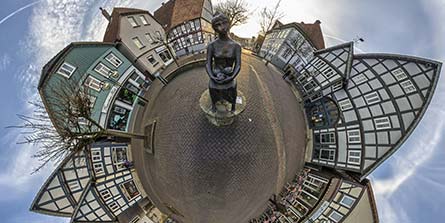
The digital marketplaces of today
Already firmly established in the B2C sector with ebay, Uber and Co., platform-based business models are becoming increasingly interesting for B2B companies. They enable them to expand their range of products and services on a digital level as well as strong networking...

GDPR - Respectful handling or scaremongering
On 25.05.2018, the new EU Data Protection Regulation (EU GDPR) came into force. Hundreds of articles have already been written about it. Everyone is talking about it, some have already taken action, others are letting it slide. Rarely has the pressure of the threat of fines been...

Generation change
The first generations, who have grown up with smartphones, tablets and an always-available Internet, are now coming of age, creating a generational shift to which companies must respond, regardless of their industry. This generational shift will also bring a change...

Shaping the digital transformation
"Digitalization is in full swing", this or similar sentences can be found in every magazine and in countless places on the Internet. One could get the impression that we (people) will soon be "digitized" as well. It can't take much longer.

Digital doesn't matter!
Is leadership still in demand in the digital world? This question is currently the subject of lively debate in connection with the digital transformation of companies. This is unsettling many managers. But don't panic! Leadership is more important than ever in the digital age.
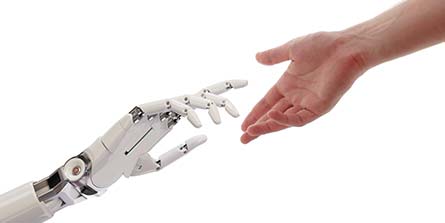
Do chatbots dream of electronic sheep?
ChatBots for customer communication, AI for selectrion, recognition and structuring of large amounts of data and autonomous airplanes, vehicles and robots. IoT, networking and cloud, these are the topics of information management in the here and now.

Digitalization is turning everything upside down
Marie-Alix Freifrau Ebner von Eschenbach, Managing Director of the Bundesverband der Unternehmensjuristen e.V. (BUJ), talks about the opportunities of digitalization, the possibilities of LegalTech products and the role of the BUJ.

Safety measures for sustainable production
In the course of Industry 4.0, production is becoming increasingly automated and part of networked IT. Increasing networking does offer many advantages, such as more flexibility, individualized products and the opportunity to conquer new markets.

The pillars of the New Way of Working
Digitalization is still a controversial topic for companies in 2017, as Jos Bischoff from BCT Deutschland GmbH explains in his article. However, young companies in particular are using their opportunities for disruptive business models by focusing their services on the...
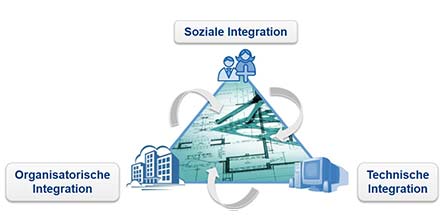
Digital transformation in healthcare
Automating purchase-to-pay management with the EIM information hub in the pharmacy and central purchasing departments of the St. Elisabeth Group. The hospital market is characterized by mergers and growth. This has an impact on procurement management, ...

First steps towards transformation
The term "digitization" and the related formula of digital transformation have been booming in the media for some time now. While many SMEs consider the topic to be very important, only a few are planning concrete digitization projects - let alone implementing them.
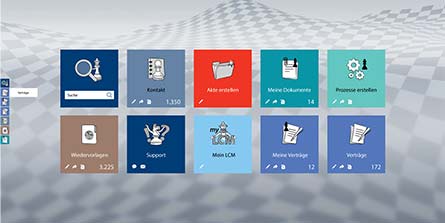
Smart - in the thick of IT, instead of just DIGITAL
Agile and digital working will challenge us humans even more than previously thought, regardless of whether we are "digital immigrants" or "digital natives". Being "digital" is IN, being there is everything, because we have a smartphone. Printing, faxing, scanning, filing, talking,...

No digital transformation without cultural change
For companies, digitizing their products and services is the central key to their future viability. That's why many market players are digitally upgrading their technological landscapes. But the breeding ground for innovation is not technology. Rather, corporate culture forms the basis...

Social media all well & good, but where are the people?
Friend requests, contact requests, link recommendations, status messages, group invitations, picture uploads, videos etc. etc. - what do YOU respond to? And who does it have to come from for YOU to respond? In this article, Xing expert and networking professional...

Take users along without overburdening them
Innovations and changes in working methods are a challenge. For a successful and lasting project, it is important to perceive and take into account different requirements and also fears. Björn Hofman from the Versorgungswerk der Rechtsanwälte im Land Hessen...

With EIM to smart administration
More and more public authorities are offering their citizens digitized services. In the Dutch municipality of Zuidplas, for example, a process-based information management system ensures efficient and effective collaboration and greater transparency in processes.
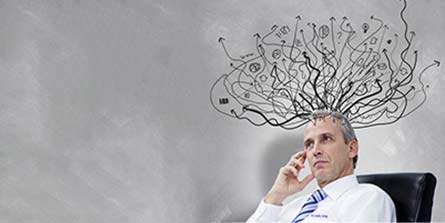
Change begins in the mind
"We are becoming increasingly aware that the most important questions are not technical but human questions," wrote legendary management pioneer Peter Drucker back in 1967. Today, as we experience digital transformation firsthand, a number of questions...
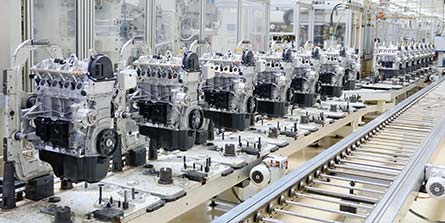
Process safety as the basis for Industry 4.0
Jürgen Huhle from AristaFlow GmbH describes in his contribution that the required and also desired digitalization on the one hand necessitates increasing flexibility and automation, but on the other hand also means a significant increase in complexity.


The remeasurement of the economy
While the past 50 years have been characterized by process innovations in companies, innovative business models and customer-oriented services will become the key competitive factor in the future. Digitalization, its conditions and its consequences...

The new industrial revolution
The term Industry 4.0 is currently on everyone's lips. It is a synonym for the "fourth industrial revolution", which stands for the computerization of society. In his article, Ralf Vinzenz Bitte, Head of the Enterprise Integration Center of the FIR e.V. at RWTH Aachen University,...